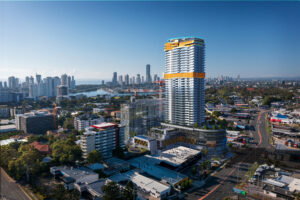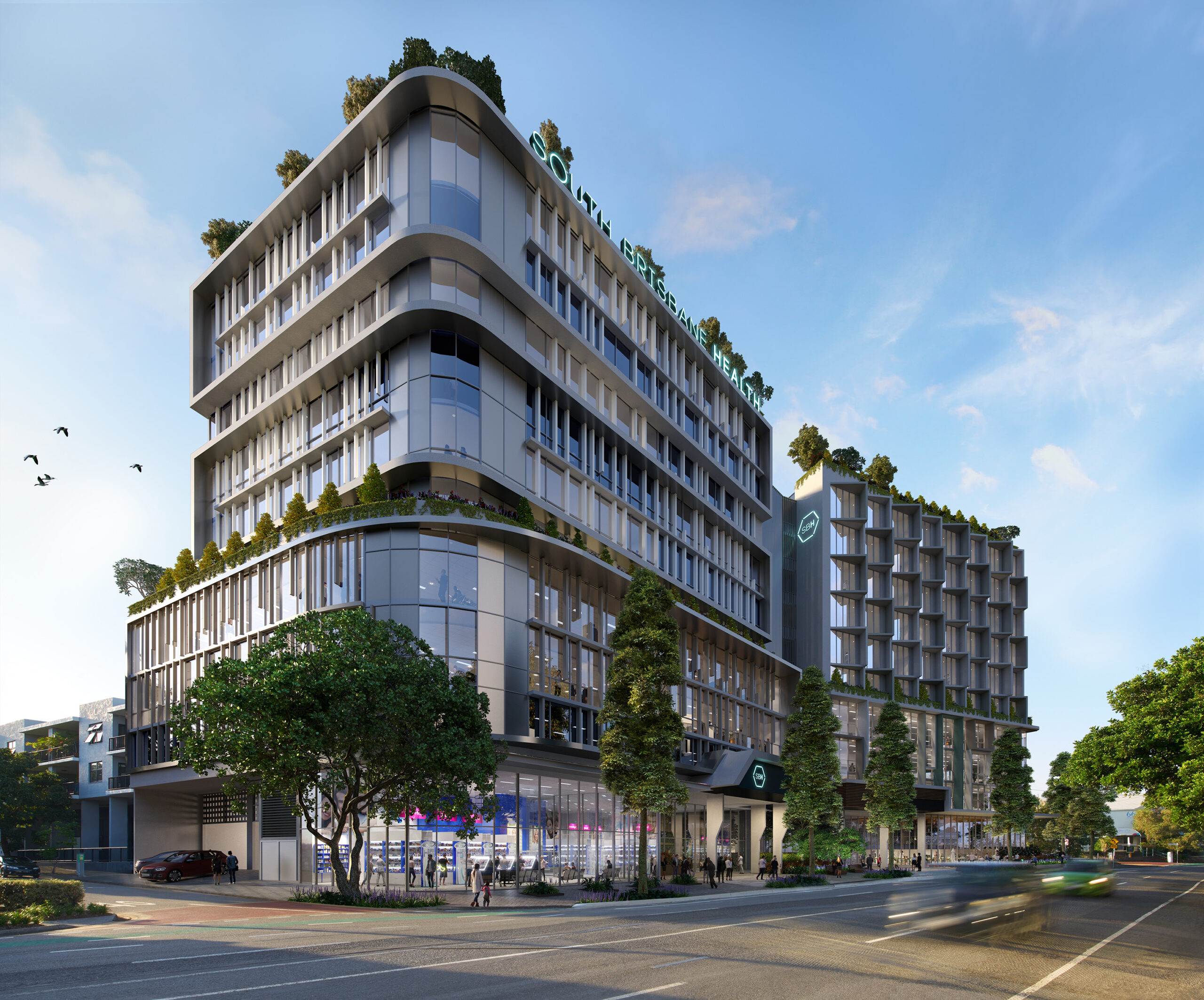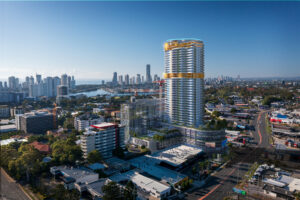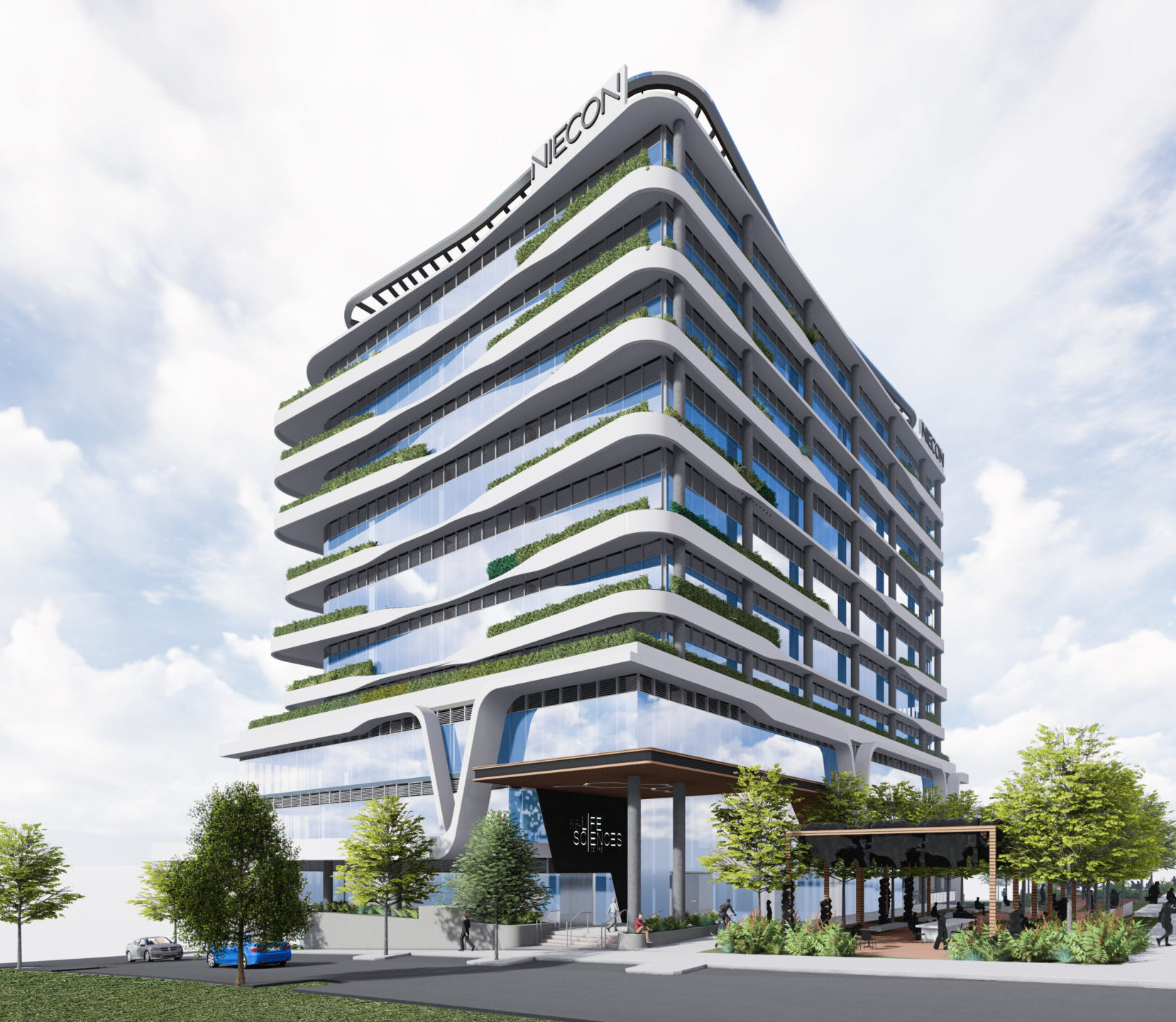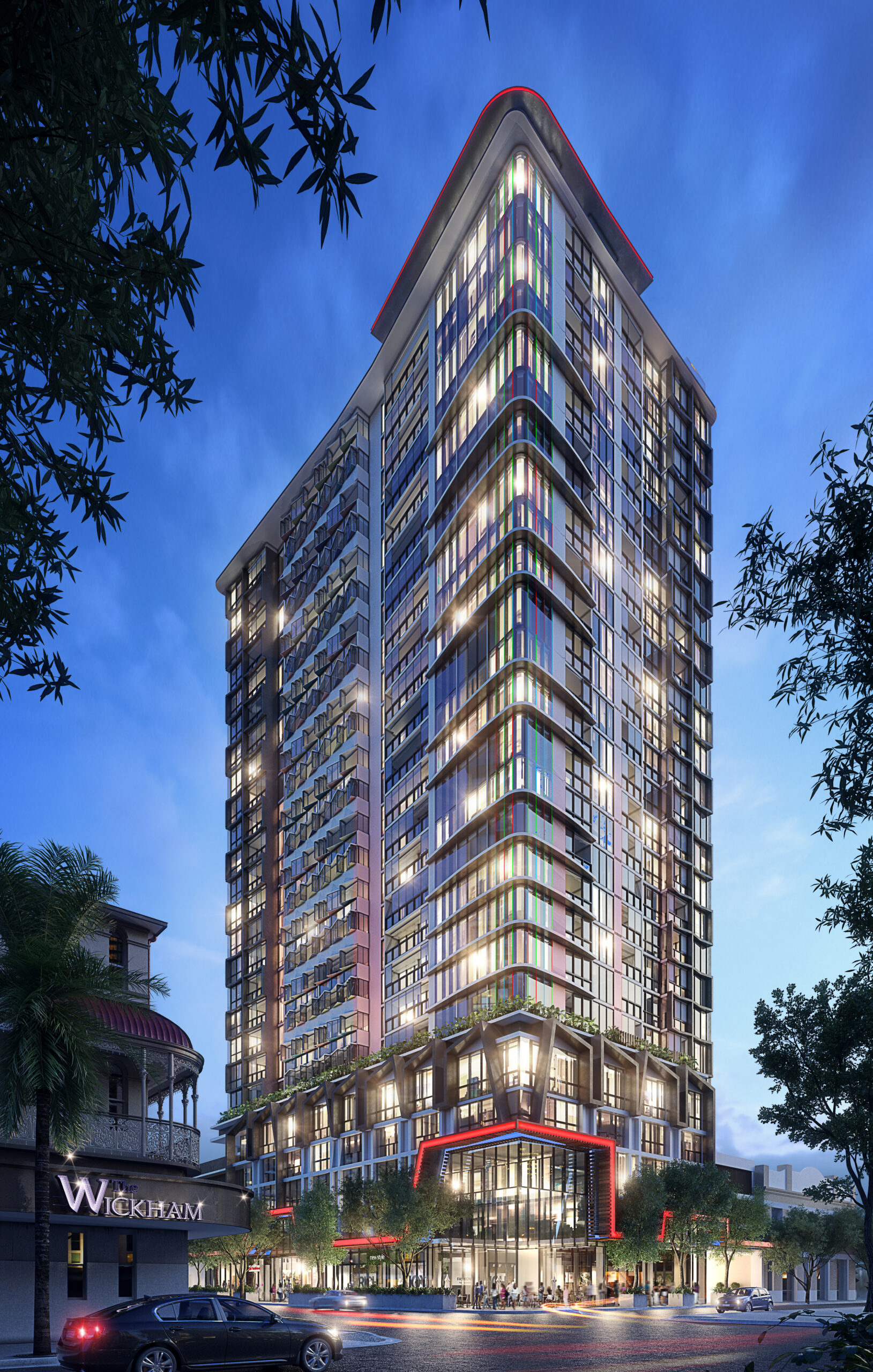
Utopia Space towers to become first Australian apartment project to use nano-glass
Brisbane’s apartment developers have made a groundbreaking decision by incorporating self-cleaning nano-glass technology in a 25-level apartment tower project located in Fortitude Valley. This innovative solution, which eliminates skin cancer-causing UV rays, has received accolades from Professor Huai Yong Zhu, an esteemed expert in molecular science from Queensland University of Technology. He believes that this adoption of nano-glass sets a precedent for future residential construction in Australia.
The remarkable nano-glass technology effectively reduces UV rays, the primary cause of skin cancer that claims the lives of 1,700 Australians annually, by an impressive 99 percent. Additionally, it provides up to 67.1 percent heat insulation, keeping the rooms remarkably cooler by up to 8.3 degrees Celsius.
According to Professor Zhu, titanium dioxide plays a crucial role in nano-glass, acting as a coating that absorbs UV light and breaks down organic compounds. He explains, “Normal glass only cuts UV rays by about 10 percent, so nano-glass offers significantly greater protection from the harsh Australian UV light.”
Moreover, the titanium dioxide coating bestows a self-cleaning function upon the glass, eliminating the need for manual cleaning and resulting in substantial cost savings. Considering Brisbane’s climate and Australia’s high rates of skin cancer, the decision to incorporate this sun-smart solution is both prudent and forward-thinking.
While nano-glass technology originated in Japan in 1995 and has been widely used in Asia, Europe, and the United States, its introduction to Australia demonstrates the growing acceptance of sun protection measures. Professor Zhu notes, “However, we haven’t embraced it to the extent of the rest of the world. In Asia, for example, people are very astute when it comes to sun protection.”
The $180 million Utopia Space tower by Sandt Developments in Wickham Street, Fortitude Valley, marks the first Australian apartment project to utilize nano-glass. Development manager Bill Wang reveals that the tower achieved over 50 percent pre-sales within weeks of its launch, attracting a considerable number of investors.
Wang explains the choice of Brisbane as their development focus, stating, “We see the potential for capital growth as well as population growth in Brisbane. It’s a much more secure market compared to Melbourne, which we believe has already reached its capacity.”
The Utopia Space tower will feature 300 apartments, with one-bedroom units priced from $399,000 and two-bedroom units starting at $580,000. The development offers a range of communal amenities, including a recreation deck with an infinity pool, steam room, gym, sauna, and reading room.
The rooftop garden will provide an oasis for residents, featuring an open-air cinema, yoga lawn, open-air kitchen, barbecue area, extensive planting, and alfresco dining space.
Architect Kris Kowalski of Kris Kowalski Architects describes the Utopia Space tower as a beacon of a building, strategically located at a prominent intersection in Fortitude Valley. Kowalski aimed to create something special, capturing the attention of passersby while providing a unique living experience for residents.
Adding an intriguing twist to the apartments, all units at Utopia have balconies that can be fully enclosed with folding glass partitions, providing residents with the flexibility to adapt to different weather conditions. Kowalski explains, “The balconies can be fully furnished to extend the interior living space, and then opened up to enjoy balmy sub-tropical evenings. We’re also in a very popular entertainment precinct, which is part of the attraction for residents, but they will be able to shut the noise out when they wish.”
Prospective buyers can explore the project’s sales office, which features a fully furnished two-bedroom display suite with available parking.
The introduction of self-cleaning nano-glass technology in the Utopia Space tower represents a significant milestone in Brisbane’s architectural landscape, offering a safer and more comfortable living environment while embracing cutting-edge innovation.
The remarkable nano-glass technology effectively reduces UV rays, the primary cause of skin cancer that claims the lives of 1,700 Australians annually, by an impressive 99 percent. Additionally, it provides up to 67.1 percent heat insulation, keeping the rooms remarkably cooler by up to 8.3 degrees Celsius.
According to Professor Zhu, titanium dioxide plays a crucial role in nano-glass, acting as a coating that absorbs UV light and breaks down organic compounds. He explains, “Normal glass only cuts UV rays by about 10 percent, so nano-glass offers significantly greater protection from the harsh Australian UV light.”
Moreover, the titanium dioxide coating bestows a self-cleaning function upon the glass, eliminating the need for manual cleaning and resulting in substantial cost savings. Considering Brisbane’s climate and Australia’s high rates of skin cancer, the decision to incorporate this sun-smart solution is both prudent and forward-thinking.
While nano-glass technology originated in Japan in 1995 and has been widely used in Asia, Europe, and the United States, its introduction to Australia demonstrates the growing acceptance of sun protection measures. Professor Zhu notes, “However, we haven’t embraced it to the extent of the rest of the world. In Asia, for example, people are very astute when it comes to sun protection.”
The $180 million Utopia Space tower by Sandt Developments in Wickham Street, Fortitude Valley, marks the first Australian apartment project to utilize nano-glass. Development manager Bill Wang reveals that the tower achieved over 50 percent pre-sales within weeks of its launch, attracting a considerable number of investors.
Wang explains the choice of Brisbane as their development focus, stating, “We see the potential for capital growth as well as population growth in Brisbane. It’s a much more secure market compared to Melbourne, which we believe has already reached its capacity.”
The Utopia Space tower will feature 300 apartments, with one-bedroom units priced from $399,000 and two-bedroom units starting at $580,000. The development offers a range of communal amenities, including a recreation deck with an infinity pool, steam room, gym, sauna, and reading room.
The rooftop garden will provide an oasis for residents, featuring an open-air cinema, yoga lawn, open-air kitchen, barbecue area, extensive planting, and alfresco dining space.
Architect Kris Kowalski of Kris Kowalski Architects describes the Utopia Space tower as a beacon of a building, strategically located at a prominent intersection in Fortitude Valley. Kowalski aimed to create something special, capturing the attention of passersby while providing a unique living experience for residents.
Adding an intriguing twist to the apartments, all units at Utopia have balconies that can be fully enclosed with folding glass partitions, providing residents with the flexibility to adapt to different weather conditions. Kowalski explains, “The balconies can be fully furnished to extend the interior living space, and then opened up to enjoy balmy sub-tropical evenings. We’re also in a very popular entertainment precinct, which is part of the attraction for residents, but they will be able to shut the noise out when they wish.”
Prospective buyers can explore the project’s sales office, which features a fully furnished two-bedroom display suite with available parking.
The introduction of self-cleaning nano-glass technology in the Utopia Space tower represents a significant milestone in Brisbane’s architectural landscape, offering a safer and more comfortable living environment while embracing cutting-edge innovation.
0 Likes

